App State COVID-19 protocol: administration and faculty at odds
January 11, 2022
App State faculty and administration started the first day of class in disagreement over COVID-19 protocol for the semester.
Seven App State deans said faculty members may be spreading misinformation regarding university COVID-19 protocol in an email to all students Monday. The email came on the first day of class shortly after the wide circulation of a professor’s open letter to students, writing the App State administration has “failed” in its pandemic response.
“It has come to our attention that some faculty might be sharing misinformation about university COVID safety protocols, procedures and decision-making that are inaccurate and potentially harmful,” said the deans’ email.
All college deans signed the email except for Sue Polanka of the Library and Information Commons and Jeff Vahlbusch of the Honors College.
App State Chief Communications Officer, Megan Hayes, wrote in a statement to The Appalachian that the email to students Monday was intended to ensure students have factual information regarding the universities COVID-19 response, particularly because Centers for Disease Control guidelines have recently changed.
Sustainable development professor Richard Rheingans wrote about his displeasure with the university administration’s pandemic response in an open letter to students Sunday. He shared the letter with colleagues who sent the message to other students or departments. Rheingans also sent the statement to the SGA Cabinet.
“In so many ways, the Appalachian State administration has failed us throughout this pandemic and now, despite a month of warning that we would face another major covid surge, they have done virtually nothing to set us up for a safe, undisrupted semester,” Rheingans wrote.
Rheingans advocated for booster shots, properly worn and better face coverings such as N95, KN95 or KF94 masks, and clearer communication on testing policy in the letter.
He also wrote that Chancellor Sheri Everts refused to meet with faculty, and the university did not tell students to get tested for COVID-19 on the fifth day of quarantine. Hayes told The Appalachian both statements were false.
Rheingans wrote that the administration has not provided faculty with sufficient support and guidelines for how to handle students who test positive for COVID-19 or have been exposed.
“The Chancellor writes to students telling them to talk to faculty about short-term remote options, but I have not heard a single message or policy or strategy regarding what that would realistically look like for faculty,” Rheingans wrote.
Everts wrote in a message to the university, Jan. 3 that students should communicate with faculty about arranging short-term remote options, and faculty should reach out to supervisors for help facilitating them.
“Faculty who have questions about classroom management should, per their faculty handbook 2.8(f) and (g), work with their department chairs to determine the best course of action,” Hayes wrote Tuesday.
Other faculty members agree they have not received adequate support or guidance from administrators.
During the meeting, faculty senators presented a survey in which 441 faculty members answered COVID-19 related questions. Of the respondents, 63% answered they do not believe App State’s pandemic policies will allow the semester to continue without disruption. Additionally, more than 300 did not believe that App State’s COVID-19 protocol will protect students and the greater High Country community.
There are 403 active cases in Watauga County as of Jan. 11, according to the AppHealthCare dashboard. The App State COVID-19 dashboard has not been updated since Dec. 10.
“The administration needs to be realistic,” said Stella Anderson, management professor. “There is only so much faculty can do to accommodate individual circumstances, have a class in person going and provide quote ‘remote options’ for students which as stated I don’t know exactly what that means.”
Michael Hambourger, chemistry professor and faculty senate vice chair, said it is easier to teach an all online class or an all in-person but combining the two is challenging and hard to accommodate.
“Everyone’s kind of scrambling in the dark looking for the right path to keep the educational experience strong while not getting people sick, yet we feel like there’s no guidance, and as soon as we step out of line, we’re going to get yelled at,” Hambourger said.
Hambourger addressed the deans’ email at the Jan 10. faculty senate meeting. He asked the deans to clarify what they meant by “misinformation” in the email.
“It was crickets. No one answered,” Hambourger said.
Anderson also attended the faculty senate meeting and said she wanted the context surrounding the email but did not receive any at the meeting.
“That’s extraordinarily disheartening to receive a message like that, that does not acknowledge faculty’s leadership on this issue, faculty’s expertise as it relates to delivering their classes, about our commitment to our students,” Anderson said.
Provost Heather Norris said during the meeting the “number one problem” App State director of environmental health, safety and emergency management, Jason Marshburn is facing is “misinformation.”
“They have not trusted faculty judgment. That is clear in every communication they have sent,” Anderson said. “It’s not like we haven’t tried to have this conversation, to have this exchange to impress upon administrators the reality for faculty in trying to make this work and trying to have the best possible semester.”
The timing of the university’s email left Rheingans unsure if it was a response to his open letter, he told The Appalachian. Rheingans later wrote the dean and chair of his department asking for clarification.
“If it is a reference to something I wrote, I certainly want to know what’s the misinformation that I might be providing and if there’s anything I wrote that could jeopardize student wellbeing,” Rheingans said. “That’s the last thing I want to do.”
The professor said he sent the letter not in hopes of creating more stress but in creating dialogue “that was necessary between faculty and students at large.” Rheingans said he’s not frustrated but “disappointed more because I don’t think this tension is necessary.”
“It’s not hard to do this better, to get to a place where we can find a better balance that’s both better education and better safety than where we’re at,” Rheingans said. “I feel like we’re missing it because the conversation is so polarized.”

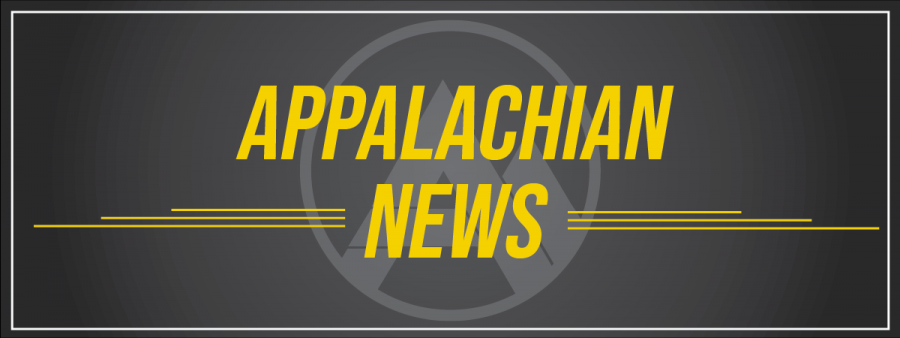

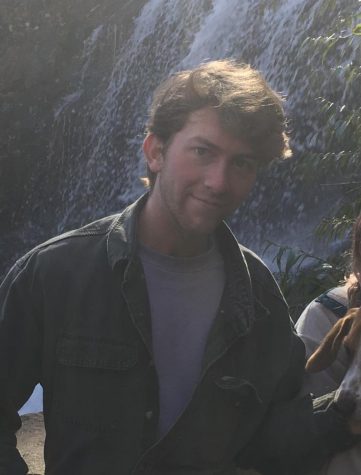
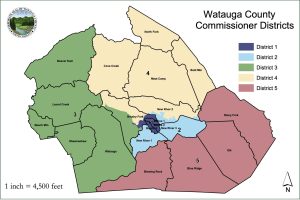



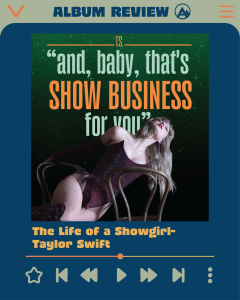
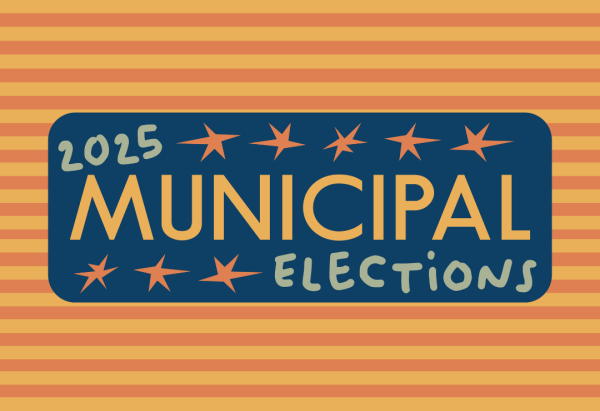
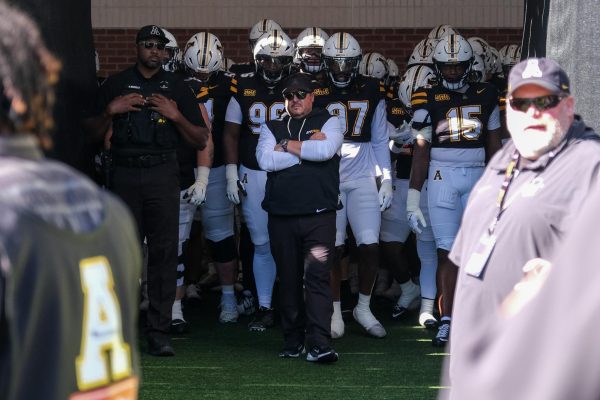

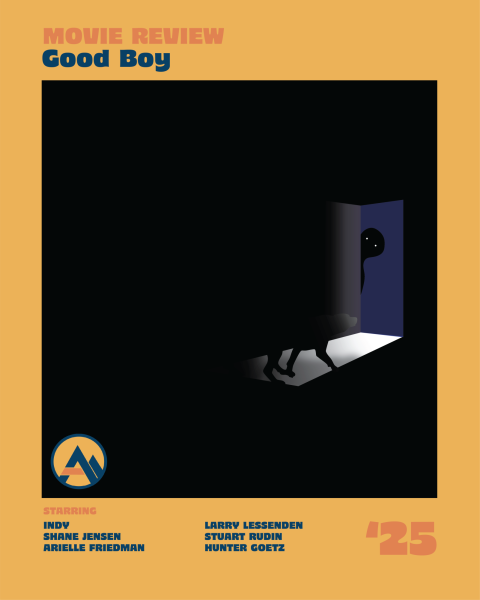
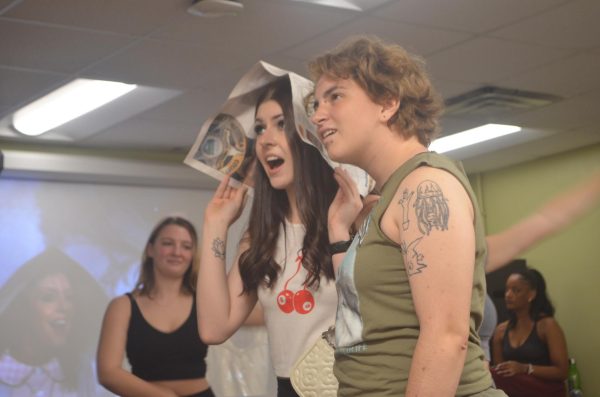

Sandy Frisk • Jan 13, 2022 at 8:34 pm
I’m a 3rd year student. I would never trust the administration over faculty. It is clear the faculty care about us and the administration doesn’t care about much of anything beyond good/bad press, power and money. Thank you faculty for standing up for us and the town and academics!
Hilary B. • Jan 13, 2022 at 8:32 pm
Pot calling the kettle black! Remember when the administration was repeatedly saying “there is no evidence of classroom spread”, and remember that emails were released that showed the County Health office told the administration they should not make this statement because it was UNFOUNDED and MISINFORMATION. They continued to make that statement anyway. They are the source of misinformation, which is why they are not trusted by students or faculty.
This administration is the most dishonest and uncaring group of people that ever led a university. They don’t care about students, faculty or the town. They only care about lining their own pockets with huge bonuses that only require enrollment growth, which any dufus can do. Just lower standards, push students into the community and on the roads, and open the floodgates to App and Boone. Just go from a 60% acceptance rate to a 95% acceptance rate, and they get a bonus. Opposite of smart leadership.
Dee Traugott • Jan 13, 2022 at 11:35 am
For parent to read all of this, I have to say I do not want my child to go here.
No. Sheri will retaliate. • Jan 13, 2022 at 12:51 pm
Dreadful campus relations are only part of the story. Since we’ve effectively erased our admission requirements to meet Sheri’s 20k by 2020 goal, the town itself is barely recognizable. The few roads here are constantly choked with traffic resulting in a lot of rage rage, the infrastructure is collapsing from the strain (our water main broke AGAIN yesterday), far more police/fire sirens than ever (I live close to downtown and I hear them multiple times a day now – they used to be very infrequent), only half the students will get vaccinated, the depressing list goes on and on. The sense of community and goodwill between the college and the town has been badly damaged and I really don’t think it’s coming back. But hey, she got her $75k bonus from the BOG for hitting the goal. I’m faculty here and there’s no way I’d subject my kids to this dysfunction.
Dee Traugott • Jan 13, 2022 at 4:01 pm
Thank you for this. My child was accepted but from what I am reading I will steer her away from app state. Every other college she applied to she was accepted to the honors school but not app state.
MuChao • Jan 13, 2022 at 4:20 pm
Sheri is a resource vampire, nothing more, and her sad little cabal of sycophantic toadies are far more concerned about their personal careers than the health and safety of our community.
Enough damage has been done. Sheri and her cabinet need to go. NOW.
MuChao • Jan 13, 2022 at 6:00 am
We still need clarification on what exactly the “misinformation” is that was mentioned in the email to students. Given the silence the Faculty Senate seemed to face and that, even now, three days later there is still not a single example or clarification provided, one must conclude that there exists no misinformation (perhaps other than the very email itself!) After all, the administration has had ample opportunity to answer this simple question.
What I find far more concerning is that so many Deans put their name to this letter. I would have to ask them one simple question: Did you request clarification on what “misinformation” was being spread before you signed this email? As a follow-up: If not, why not?
Sandro N. • Jan 12, 2022 at 9:22 pm
This article states that “All college deans signed the email (that went out to students about COVID) except for Sue Polanka of the Library and Information Commons and Jeff Vahlbusch of the Honors College.” Have you verified with any of those deans that they actually wrote that email or consented to have their names on it? I wouldn’t be surprised if the university’s PR machine wrote that and put the deans’ names on it.
Lindsey Williams • Jan 12, 2022 at 8:32 pm
This administration repeatedly disseminates misinformation to faculty and students. It is a dishonest and unethical group of people. Let’s count the ways:
1. We can’t move money to provide raises to faculty and staff. After two years of being called out for this ridiculous lie, they finally admit they can move money and announced they will move money to provide a raise.
2. Athletics is self-sufficient. Athletics operating expenses total about $37 million each year. Athletics operating revenue totals about $14 million per year. EVERY YEAR, athletics runs a $24 million operating deficit. They fill this deficit mostly with student fees but also with institutional support. Athletics is NOT self sufficient, but the administration lies because they don’t want people to know that they value athletics over academics.
3. They post incorrect information about their performance, including inflated numbers on the percent of faculty with terminal degrees., deflated numbers on the embarrassingly high acceptance rates, inflated numbers of the retention rate, and on and on and on.
4. They admit students and fail to provide them a bed as promised. Instead, they send incoming freshman to live in a basement apartment many miles outside of town in rural Appalachia.
5. They have been repeatedly caught lying about COVID data, including under counts of cases.
6. They told incoming students that classes will be in-person when they knew they would be delivered online 99% of the time.
7. They tell students they will be able to take the classes they need, but they push growth in enrollment that prohibits students from taking the classes they need to graduate.
The administration is full of lies from budgets to COVID. They don’t care about the town or the students. And they don’t care about academics. They just want to generate revenue by increasing enrollments. For them to suggest that the faculty are the ones that are misinforming students is laughable. Faculty and staff are the only people on campus that cares about the students. The administration…..students are numbers and $.
Justin • Jan 12, 2022 at 5:03 pm
Ridiculous to push for more restrictions.
Neither the faculty or administrators seem to understand that this is my body and my choice.
Oliver • Jan 13, 2022 at 5:48 am
It’s also “your choice” to attend another university if you feel that way. This kind of childish and selfish behavior is *exactly* why we’re still in this mess.
Quitting in May!! • Jan 13, 2022 at 10:39 am
So you choose to use your body as a potential vector for a highly contagious virus that has killed over 5 million people? And you want to play the victim card? Good grief. It’s people like you that are dragging this thing out. You don’t seem to understand that other people’s right to life outweighs your inconvenience. Get jabbed, mask up, and turn off Fox News, sparky. Then maybe we can talk about on-campus classes again.